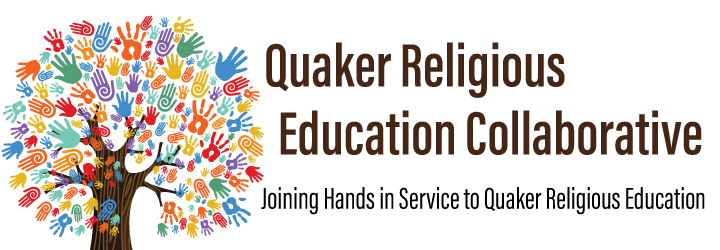
RISE: A Quaker Youth Curriculum
on Human Relationships and Sexuality
Conversation Circles, November 15 & 17, 2022
R elationships and sexuality are central to the spiritual work of adolescence. As Friends we seek how to help teens develop healthy relationships and explore sexuality in a safe, affirming way.
Over the course of several years, Durham Friends Meeting has developed RISE (Relationships and Integrity in Sexuality and Embodiment), a human relationship and sexuality curriculum for 7th and 8th grade Quakers. This course provides opportunities for middle school youth to explore human relationships, sexuality and what Quaker spirituality offers them at this point in their life. The course is offered in two 24-hour retreats, one at the beginning and one at the end, with three briefer workshops between. Join the conversation to learn more.
Queries:
-
How can we create a safe, truthful space in the Meeting for young Friends to grow as spiritual beings while they explore relationships and sexuality?
-
How can we help parents balance letting go with guiding young Friends as they take risks and develop new identities?
-
How can we create support in the Meeting for parents to grow spiritually through the time of their children’s adolescence?
-
How can we encourage mentorships between teens and older Friends through the transitions of adolescence?
Conversation Starters:
Andrew Wright and Oriana Messer, Durham Friends Meeting, NCYMC
Facilitator:
Sita Diehl, Madison Friends Meeting, NYM
Summary:
- When teaching RISE you can go to the shared drive, open and print the documents: RISE Documents to Share folder
- Contact form for Friends who would like to collaborate on RISE curriculum implementation
- Age group: 12- and 13-year-olds but can be done with older teens. Can do first retreat and three evenings, then do a closing retreat after several months.
- Group size: Ideally 8-10 youth including friends of Friends
- Timing: First retreat (early in the academic year) then three evening retreats a month apart, then several months before the final retreat (perhaps near the end of the academic year).
- Adult to participant ratio: One adult to four youth. At least 2 leaders, 4 is better, people of different genders.
First 24-hour Retreat: usually winter
- Where do you stand? Instructor reads assumptions or statements. Youth arrange themselves along strongly agree to strongly disagree scale.
- What do you call that? Breaking down barriers to using words about body parts, slang, rude, biographical.
- Concerns checklist, youth check it off, then group goes over it later in the course.
- Talk about Quaker testimonies and ask teens which testimonies apply. Also take moments for silent worship.
- Agreements: The group decides the ground rules for helping them feel safe together. Ability to say “oops” or “ouch”! Acknowledge and apologize when feelings hurt.
- Lecture on anatomy: We use the book, It’s Perfectly Normal, by Robie H. Harris as foundation for the lecture.
- Walk/Materials hunt for natural materials, then construct models of reproductive systems. It’s a fun, creative activity that loosens up the atmosphere.
- 3D bodies exercise: It’s fun, people laugh and “Laughter is like shame leaving the body.”
- Lecture on puberty, development, how to take care of your body. Straightforward, non-shaming.
- Group games that are silly and build connection.
- Body image exercise
- Reflection on creation story: Godly Play creation story. The refrain is, “God saw that it was good.” Affirming of the physical world.
- Guided meditation: Body scan. Chance to be in silence, what are you feeling in your body? Feeing them and let them grow. Bring youth back to listening inwardly.
Three Sunday evening workshops: Spring
- Gender, gender identity, sexual orientation: We watch videos together from Amaze.org. Panel of people to talk about gender and sexual identify, gender roles, gender expression. Their experiences growing up in terms of sexuality.
- Relationship skills, assertiveness & consent, active listening, panel of couples, ideally people who teach couple enrichment
- Sex and intercourse: masturbation, love making, other sexual activities, abstinence. How to talk about what you do and don’t want to do. How to handle risks.
Concluding 24-hour retreat: Following fall
Similar topics to first retreat, but at a deeper level. Goes into sensitive topics.
- Birth control, barrier & non-barrier methods, getting tested. Instruction on condom use. Condom relay race.
- Sexual harassment, rape, sexual violence, child sex abuse: What does it look like? How to interrupt, how to help a friend, resources.
- Pornography, internet safety
- Sexual decision-making. When are you ready to have sex? When you and your partner are ready to talk about it in-depth. The way we frame the issue is empowering but encourages Friends to wait until they are ready. We ask, “Are you ready to have this conversation?” Most aren’t. There is an Amaze video that defines abstinence in the context of readiness to have the conversation.
- How the inner light, inner teacher helps us with discernment and decision-making. Personal values and testimonies of the Quaker community. Listening to the Spirit and listening inside yourself.
The curriculum helps youth feel comfortable talking about sex and human relationships with each other, but also with their parents and members of the Meeting community.
Resources:
- RISE Documents to Share folder
- RISE interest contact form
- It’s Perfectly Normal: Changing Bodies, Growing Up, Sex and Sexual Health, by Robie H. Harris
- org, from Advocates for Youth, AMAZE provides young adolescents with medically accurate, age-appropriate and affirming sex education.
- Wait, What? A comic book guide to relationships, bodies and growing up, By Heather Corinna and Isabella Rotman, with Luke Howard
- You Know, Sex: Bodies, Gender, Puberty, and Other Things by Cory Silverberg and Fiona Smyth
- Delighted: What teenagers are teaching the church about joy, by Kenda Creasy Dean, Wesley W. Ellis, Justin Forbes.
Learn more: Visit the QREC Resource Library and subscribe to our announcements











